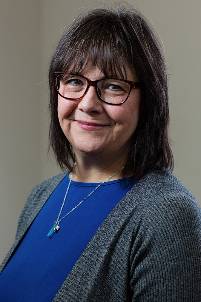 |
Human services assistants are involved in providing direct and indirect services
in public and private agencies by assisting individuals, families and groups to meet
human needs. Human needs may be social, emotional, behavioral, environmental, and
vocational or health related.
These services generally require interaction with clients and are of a helping nature."
Graduates of this program will be trained to work in a variety of support service settings, such as senior citizen centers, correctional facilities, nursing homes, rehabilitation programs, childcare development centers, departments of human services and non-profit agencies specializing in these services. The graduate will be trained to provide generic therapeutic, supportive and preventive services for people with emotional, developmental, social or physical problems in a variety of social or human service settings. These individuals will also be equipped to match clients with the appropriate services, advocate for clients, and provide administrative support to agencies.
The Human Services program is accredited by the Council for Standards in Human Service Education (CSHSE), 3337 Duke Street, Alexandria, VA 22314-5219, phone: (571) 257-3959, website: http://www.cshse.org.
Health care providers and social services agencies are placing an increased emphasis on their search of employees holding degrees in human services. According to the Long Term Occupational Employment projections job opportunities for human services assistants are expected to increase by 23 percent through 2018 in Arkansas. One-hundred and seventy-four annual openings in Arkansas due to growth, and replacement are expected each year through 2018. The annual mean salary for human services assistants currently is $23,320.
Currently more than half of the professionals employed in the human services field work in the health care and social-assistance industries. Of those in this occupation more than one -third worked in state and local government, primarily in welfare agencies and in agencies offering aid to mentally and physically challenged individuals.
The following is required for admission to the proposed Associate of Applied Science in Human Services:
The following scores will be used for placement in English, Math, and, if required, Reading, courses:
ACT COMPASS COURSE19 ACT English (75 Writing) ENGL 1013 19 ACT Reading (82 Reading) READ 0103 19 ACT Mathematics (41 Algebra) MATH 1113
Learning Outcomes and Assessment Procedures

Lynn Washington
Program Chair
Technology and Academic Support Building, Room 146
1700 Helberg Lane
Ozark, AR 72949
(479) 508-3319
lwashington@atu.edu